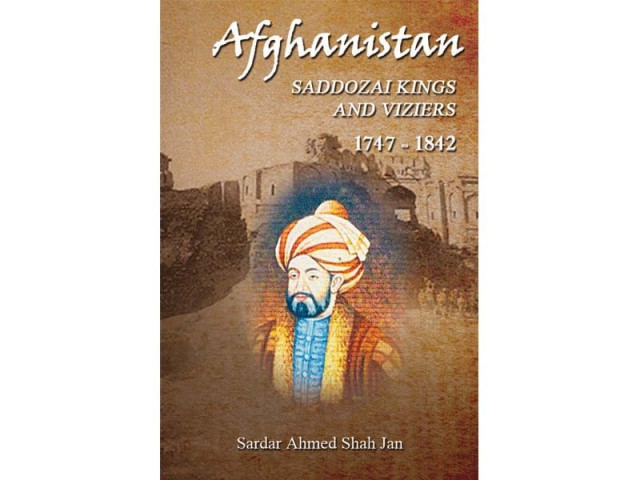Going back in time: Tracing long lost Saddozai tribe of Afghanistan
Sardar Ahmed Shah Jan’s book talks about Pashtun ruler, King Ahmed Shah Abdali
Sardar Ahmed Shah Jan’s book talks about Pashtun ruler, King Ahmed Shah Abdali .
PESHAWAR:
Moved by his urge to bring to the fore the story of a tribe that put Afghanistan on the map, Wing Commander (retd) Sardar Ahmed Shah Jan wrote a book on the lost Saddozai tribe that has recently been published.
“The book is a humble effort on my part to portray the Saddozai tribe in its true perspective in relation to other Afghan tribes,” said the author while talking to The Express Tribune.
The book Afghanistan: Saddozai Kings and Viziers 1747-1842 goes back to the time when King Ahmed Shah Abdali united the warring Afghan tribes in the last half of the 18th century to form the first dynasty of rulers of modern-day Afghanistan.
Tale of the tribe
The Saddozais hail from the valleys of Kandahar, Kabul, Tarnak and Logar in Afghanistan.

They are a Pukhtun tribe and are one of the clans of the Popalzai tribe. However, there came a time in the 18th century, as described in the book, when the tribe hit an abysmal low. Its rise to power was seen once again in India and the tribe earned three knighthoods in bravery.
Read: 'Secret letter' reveals Afghan pressure on Pakistan
During the 19th century, the tribe served the British in the subcontinent and was with them during both the world wars. Jan shared, though the British entered Afghanistan by installing a Saddozai king in Kabul, it later cast the tribe aside.
A book for today
Jan believes the book can be applied to mainstream politics in Afghanistan where the Afghan government can become the catalyst of peace in the country by following in the footsteps of King Abdali.
Describing the method with which the king brought about peace during his time, Jan said Abdali would conquer different regions and make the warlord of the conquered region its governor, creating a win-win situation. “He made one warlord the governor of his district as part of the Durrani Empire.” Today, Jan said, the Saddozai tribe has faded into insignificance as most of families have settled in India and elsewhere. Some live in Pakistan as well but they are those who were born and bred in the country and are detached from their ancestors. “The Saddozais have merged into society,” losing their distinctive edge.
Nevertheless, what motivated the retired commander to unearth the tribe’s history is its connection with his roots and his interest in contemporary politics and regional culture.
Sardar Ahmed Shah Jan
The author was born in Peshawar in 1939. He attended Islamia College Peshawar and later received a master’s degree in English from the University of Peshawar.
Jan also taught English at the PAF Academy in Risalpur between 1965 and 1984, after he retired as a wing commander.
Presently, he is working on compiling a book of letters to the editor which he has written over the last ten years while living at his house in Cantt, Peshawar.
Published in The Express Tribune, June 22nd, 2015.


COMMENTS (3)
Comments are moderated and generally will be posted if they are on-topic and not abusive.
For more information, please see our Comments FAQ